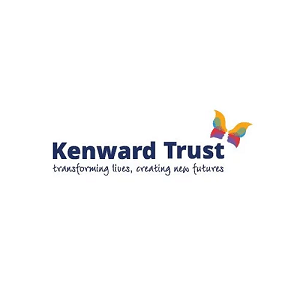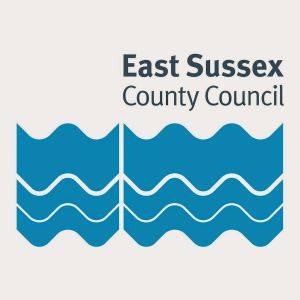Drug & Alcohol Rehab in East Sussex

How Does Rehab Work?
Rehab involves the support services and therapies that those that have drug and alcohol addiction receive to conquer addiction and subsequent relapse. When a medical assessment and detox are completed, individuals will receive addiction treatment in the form of therapy. Treatment is made up of therapy from a qualified counsellor, the attendance of group meetings as with a 12 Step programme, and the option of inpatient or outpatient rehabilitation. Inpatient rehab services require that clients live at the residence or centre for the period of therapy. Outpatients will attend therapy by counselling or meetings but will not stay at the facility. Consultation with a medical specialist and an individual assessment will help determine whether inpatient or outpatient services are suited to your needs.
What Happens During Residential Rehab?
The decision to look for rehab for drug and alcohol addiction is a brave one and will be supported with individualised rehabilitation services. We offer a breakdown of what you can expect during the process of drug and alcohol rehabilitation.
During rehabilitation, you will get an individualised assessment performed by a professional. The purpose is to determine the best treatment plan based on your history of addiction and current condition. Here, medical staff will look for comorbid disorders such as mental health conditions that exist alongside addiction.
An assessment is followed by detox. Detox is a structured process and is performed by a residential rehab or at home with support from a medical professional (outpatient services). During this step, individuals abstain from drugs and/or alcohol use until the substance is no longer present in the body. Because of the difficulties associated with withdrawal, a medically supervised detox from drugs and alcohol is recommended.
While attending rehab patients will receive therapy. Therapy can be accessed on an inpatient or outpatient basis. Therapy ranges from individual counselling including Cognitive Behavioural Therapy, skill-building and group sessions.
1. Assessment

A medical assessment is conducted prior to treatment to determine medical history and alcohol/drug use over time. If you are looking for residential treatment, an admissions team will give you a telephone assessment. An assessment by phone aids the treatment facility delivers a customised treatment package. It can also help medical professionals to assist the individual during detox.
Whether you or someone you love require professional support to overcome substance addiction, it all starts with an individual assessment. Assessments are vital to the success of therapy because it determines the type of therapeutic approach based on the addiction and potential comorbidities (depression or anxiety).
2. Detox

Detox will be completed before therapy commences. It is often performed in a private facility where individuals can receive 24/7 care to ease withdrawal symptoms.
Medical detox is often recommended because it allows medical staff to oversee withdrawal symptoms. Withdrawal from drugs or alcohol can be uncomfortable and relapse may occur if not managed within a treatment centre facility. Medically assisted detox can ease the process by supporting clients and providing detox medication to reduce uncomfortable symptoms. During an individual assessment, a professional will determine which approach is best suited to a comfortable detox and entry into treatment thereafter.
3. Therapy

Once a medical assessment and detox are completed, individuals will begin therapy. Therapeutic intervention may consist of inpatient or outpatient programmes that depend on your budget and life commitments. Some of the most common therapies you can expect at a treatment facility include traditional one-on-one therapy, trauma counselling, and skill development, as well as group therapy sessions.
Step by Step Process for Residential Rehab
To understand your medical and mental health history.
Arrange a suitable date to begin your journey to recovery.
Begin the managed withdrawal process from substances including alcohol.
To understand the root cause of addiction and how to overcome it.
Aftercare is provided to help manage the risk of relapse.
To help heal the wounds that addictive behaviour has caused others.
Find your Nearest Rehab Centre in East Sussex
The nearest rehab centre is Pavilions Drug and Alcohol Services.
Address: Pavilions Drug and Alcohol Services, Richmond House, Richmond Rd, Brighton BN2 3FT
Call 0333 4444 432 to discuss your alcohol or drug rehab requirements and any other questions you may have about the process of residential rehab.
Outpatient Addiction Services in East Sussex
Inpatient or outpatient options for dependence can be determined by your budget requirement & individual circumstances. Nevertheless, it is an individual process that requires commitment and awareness to succeed. To help you understand these different options, we look at outpatient addiction services compared to residential treatment.
Outpatient programmes are not around-the-clock or even a 12-hour programme, but instead, involve weekly meetings with a therapist or group. Individuals will stay at home and continue to work or tend to family time while receiving the necessary therapy.
Private Outpatient programmes involve therapy with counselling sessions delivered by a therapist/counsellor. Sessions can last between 60 and 90 minutes. Free alternatives do exist via one of the many reputable charities in the UK (Turning Point), but it does not provide the same individualised care that private services provide.
The Benefits of Outpatient Services
Private Outpatient practices focus on individual support that is customised to suit the interests of those struggling with addiction. – Outpatient treatment is a more flexible setup that can help many struggling with addiction, regardless of financial or personal commitments. It involves the attendance of weekly sessions with a qualified therapist or counsellor. – It is a more cost-effective treatment programme compared to residential addiction treatment.
The Challenges of Outpatient Services
Outpatient services will always have a crucial role in rehab but for drug or alcohol addiction, staying at home with access to triggers and the usual social circles can risk relapse. Furthermore, free outpatient services provided by the NHS or UK-based charities do not provide the same tailored programme that private outpatient services provide, and there is typically a waiting list before you can be accepted for treatment.

How Much Does Rehab Services Cost in East Sussex?
Residential drug and alcohol rehab can cost around £1500- £4000 per week. Private addiction treatment within a residential centre may not be accessible for all. Fortunately, charity based and government organisations deliver free or low cost services that individuals with addiction can get help from.
Fortunately, free programmes are offered by organisations including the NHS and charities such as Turning Point (that requires self-referrals). Other organisations that offer free and community-based therapies for drug or alcohol addiction include Alcoholics Anonymous (AA), Cocaine Anonymous, and Narcotics Anonymous.
Support Groups in East Sussex

Eastbourne Langney Reflections
St Barnabus Church, 34 Kingfisher Drive, Langney BN23 7RL

Uckfield
United Reformed Church, 76 New Town TN22 5AE
The Pros and Cons of Seeking Treatment in Your Local Area
Pros
1. You are familiar with the area which may provide a layer of comfort/safety.
2. Loved ones can easily travel to visit or are close by.
3. You may save on the costs of travelling long distances for treatment, or free addiction services may only be offered in your area of residency.
Cons
1. A local environment means access to drug dealers or other triggers. This is more of an issue if you decide upon outpatient programmes.
2. Failing to consider locations outside your area could mean a missed opportunities for more valuable and rewarding programmes.
3. Addiction treatment services nearby do not always provide the best standard of treatment.
In the event you are unsure about a particular addiction treatment service, you can look to the CQC website for more information including a rating of that service.


